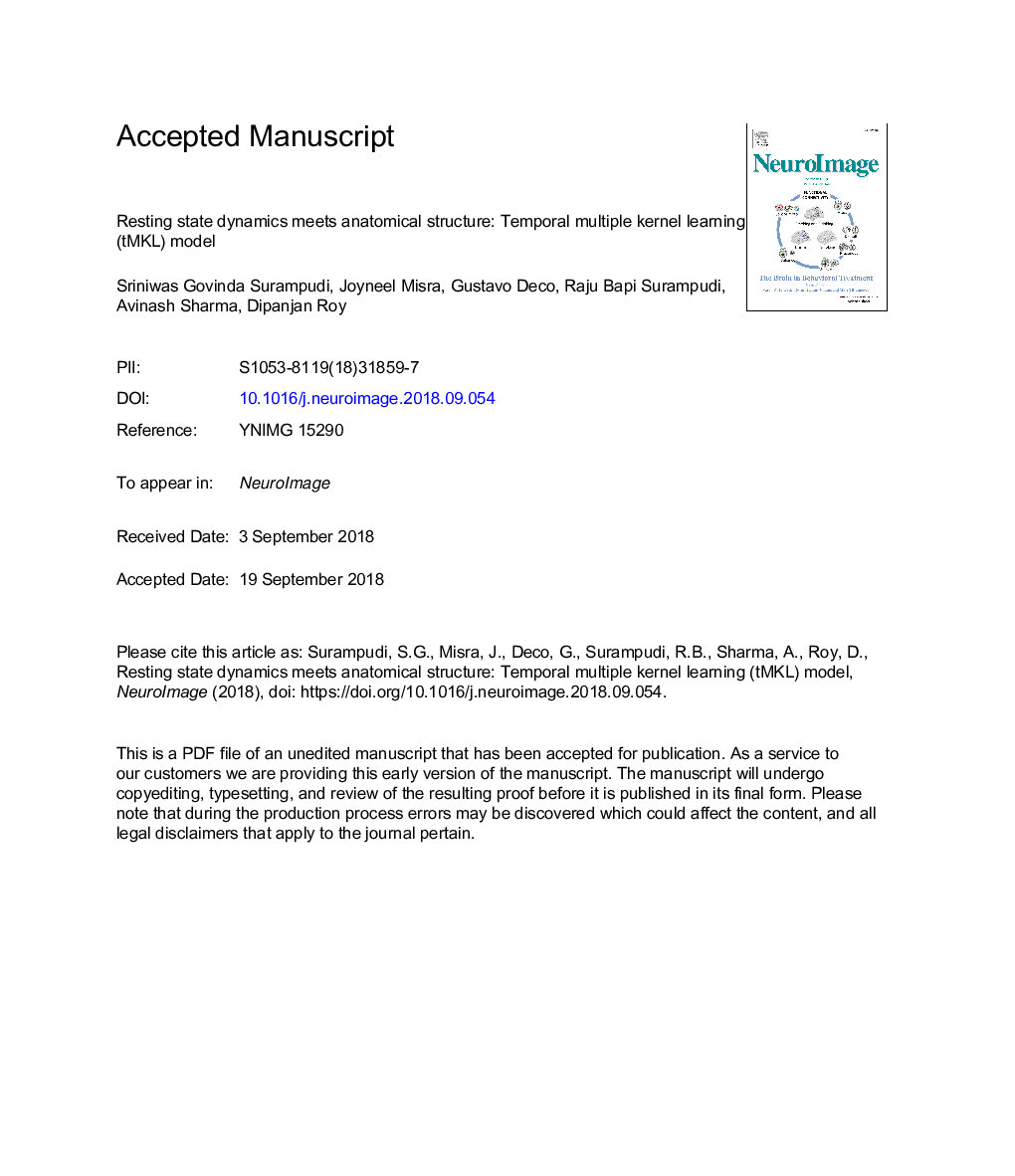| Article ID | Journal | Published Year | Pages | File Type |
|---|---|---|---|---|
| 11025508 | NeuroImage | 2019 | 26 Pages |
Abstract
The proposed solution does not make strong assumptions about the underlying data and is generally applicable to resting or task data for learning subject-specific state transitions and for successfully characterizing SC-dFC-FC relationship through a unifying framework. Training and testing were done using the rs-fMRI data of 46 healthy participants. tMKL model performs significantly better than the existing models for predicting resting state functional connectivity based on whole-brain dynamic mean-field model (DMF), single diffusion kernel (SDK) model and multiple kernel learning (MKL) model. Further, the learned model was tested on an independent cohort of 100 young, healthy participants from the Human Connectome Project (HCP) and the results establish the generalizability of the proposed solution. More importantly, the model retains sensitivity toward subject-specific anatomy, a unique contribution towards a holistic approach for SC-FC characterization.
Related Topics
Life Sciences
Neuroscience
Cognitive Neuroscience
Authors
Sriniwas Govinda Surampudi, Joyneel Misra, Gustavo Deco, Raju Surampudi Bapi, Avinash Sharma, Dipanjan Roy,
